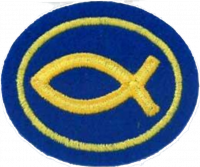Requisitos para la especialidad JA de Discípulos y apóstoles
Nivel de destreza
2
Año
2016
Version
11.02.2026
Autoridad de aprobación
División Norteamericana
1. Definir los siguientes términos investigándolos en una fuente literaria cristiana de buena reputación y discutir su significado con su unidad, instructor o un pastor.
- a. Discípulo
- b. Apóstol
- c. Misionero
2. Para las siguientes preguntas, dar no sólo la respuesta, sino también el texto(s) bíblico(s) en el que encontró la(s) respuesta(s).
- a. ¿Cuáles son los nombres de los doce discípulos originales llamados por Jesús?
- b. Nombrar por lo menos dos discípulos del Antiguo Testamento.
- c. La mayoría de las denominaciones cristianas se refieren a Saulo de Tarso como el Apóstol Pablo. ¿Cómo pueden estar tan seguros de su llamado?
3. Considerar las siguientes preguntas y compartir su comprensión usando cualquier medio creativo (un artículo de opinión, un dibujo, un video, una publicación por computadora con imágenes, un poema, una canción, una actuación dramática, etc.).
- a. ¿En qué momento los doce discípulos de Jesús pasaron a ser apóstoles?
- b. ¿Puede ser un apóstol o un misionero sin ser un discípulo?
- c. ¿Cuál es una similitud entre apóstoles, discípulos y misioneros?
- d. ¿Cuál es una similitud y una diferencia entre un apóstol, un misionero y un profeta?
- e. Considerando Mateo 28:19 y 20, ¿puede un verdadero discípulo seguir a Cristo sin \cumplir algún papel apostólico o misionero?
4. Hacer una de las siguientes:
- a. Leer Mateo 4:18-22 y describir brevemente o demostrar a través de un medio creativo el relato bíblico de cómo los primeros discípulos fueron llamados a seguir a Cristo. También demostrar la importancia y el impacto que tuvieron estos llamados acerca del futuro del evangelio.
- b. Leer Hechos 2 individualmente o con un grupo. Describir brevemente o demostrar a través de un medio creativo el relato bíblico de lo que ocurrió en el Pentecostés y determinar cómo este evento impactó al futuro de la iglesia cristiana.
5. Leer Hechos 9:1-31. Basado en su lectura, desde cada una de las tres perspectivas (Saulo, Ananías y un cristiano en Jerusalén), discutir o hacer el papel de las respuestas a las siguientes preguntas:
- a. ¿Podría, hubiera, o debería Pablo ser confiado por los primeros creyentes cristianos después de su conversión?
- b.
Must we go to God to be converted or does He come to us to offer conversion, no matter where we are or what we are doing?
Read Chapter 2 of the book The Acts of the Apostles by Ellen G. White entitled, “The Training of the Twelve”. Individually or with a group, consider the methods Christ used to train His disciples. Determine if those exact methods would still work today, or would there be modern equivalents that could be used to train people to be disciples of God.
With a group, role-play a specific scene from the life of a disciple, an apostle or a missionary of your choice. Briefly explain why you chose this scene and why you think it illustrates their calling from God.
From what you have learned in studying these subjects, is it possible for there to be an Apostle in the Seventh-day Adventist church today? How about during any point during the time period since the mid-1840s?
Illustrate through drawings, sketches, or photographs the travels of Paul as he proclaimed the gospel to the world.
- a.
Be sure to capture some of the cultural icons that Paul was facing while preaching Christianity to the secular gentile world. How do these differ from the secular cultural icons of today?
- b.
All Biblical scholars agree that there were at least three Pauline missionary journeys as described in the 28 Chapters of Acts. Some Christians hold that there was a fourth and possibly a fifth journey that are alluded to in the lost chapters of Acts (29 & 30). Talk with your pastor and discuss how you should treat these theories and would these additional journeys in any way change or illuminate Paul’s ministry.
Over a two-week process, conduct a daily self-evaluation of the quality of your discipleship for that particular day. Rate based on the statements below on a scale from 1 to 10 where ten means you are very strong in that area and one means you are weak. Contemplate your assessment, set goals for improvement, and ask Jesus to provide you the necessary strength to meet these goals.
- a.
Your desire is to please God in all that you do.
- b.
You have a passion to share your faith with others.
- c.
You allow the Lord to lead your decision-making process.
- d.
You pray every day on a regular basis.
- e.
You spend time with the Lord through worship.
- f.
Your life represents Jesus to those around you.
- g.
You reach out to those who are less fortunate than you.
11.
State the Great Commission, as outlined in Matthew 28:19-20.
- a.
List three specific roles this text defines as part of a missionary or apostolic calling.
- b.
Brainstorm a list of New Testament stories that illustrate the different parts of the Great Commission.
- c.
Evaluate and list ways in which modern Christians in your area can put the Great Commission into practice.
- d.
Using what you’ve learned from this honor, brainstorm an idea on how you can help fulfill the Great Commission. Talk with your instructor and/or a pastor about your idea and then put this idea into practice for a period of at least one month. Share with your class, instructor, or your pastor how this activity has changed your relationship with God and whether you have seen any effects on others.


